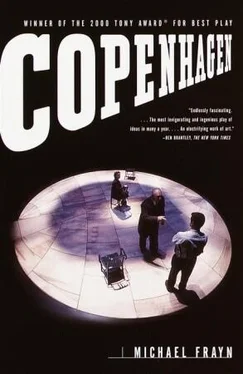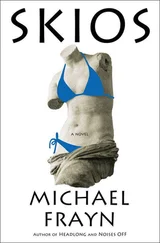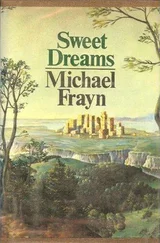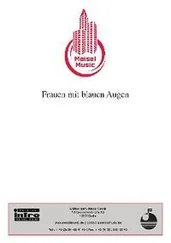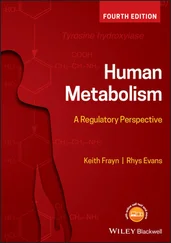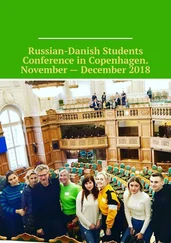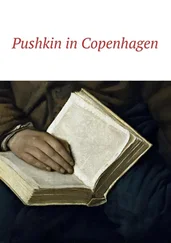*
I have had many helping hands with this play, both before it was produced in London and since. Sir John Maddox kindly read the text for me, and so did Professor Balázs L Gyorffy, Professor of Physics at Bristol University, who made a number of corrections and suggestions. I am also indebted to Finn Aaserud, the Director of the Niels Bohr Archive in Copenhagen, and to his colleagues there, for much help and encouragement. Many scientists and other specialists have written to me after seeing the play on the stage. They have mostly been extraordinarily generous and supportive, but some of them have put me right on details of the science, for which I am particularly grateful. They also pointed out two mathematical errors so egregious that the lines in question didn’t make sense from one end to the other — even to me, when I re-read them. All these points have now been addressed, though I’m sure that other mistakes will emerge. So much new material has come to hand, in one way or another, that I have extensively overhauled and extended this Postscript to coincide with the production of the play in New York.
One matter of dispute that I have not been able to resolve completely concerns the part played by Max Born in the introduction of quantum mechanics. The matter was raised (with exemplary temperance) by his son, Gustav Born, who was concerned about the injustice he felt I had done to his father’s memory. I was reluctant to make the play any more complex than it is, but I have since made adjustments both to the play itself and to this Postscript which go at any some way to meeting Professor Born’s case. We are still at odds over one line, though, in which Heisenberg is said to have’invented quantum mechanics’. I am quoting the judgment of other physicists here (including one not especially sympathetic to Heisenberg), but I realise that it is a huge over-simplification, and that it seems to compound the original injustice committed when Heisenberg was awarded the Nobel Prize in 1932 ‘for the creation of quantum mechanics’, while Born had to wait another 22 years to have his part acknowledged in the same way. The trouble is that I have not yet been able to think of another way of putting it briefly enough to work in spoken dialogue.
The American physicist Spencer Weart, in a letter to Finn Aaserud, very cogently pointed out that the calculation of the critical mass was much harder than I’ve made it seem for Heisenberg once Bohr has suggested it to him. ‘Perrin failed to get it and his publication of a ton-size critical mass subtly misled everyone else, then Bohr and Wheeler failed, Kurchatov failed, Chadwick failed, all the other Germans and Russians and French and British and Americans missed it, even the greatest of them all for such problems, Fermi, tried but missed, everyone except Peierls … Physics is hard.’
Some correspondents have also objected to Heisenberg’s line about the physicists who built the Allied bomb, ‘Did a single one of them stop to think, even for one brief moment, about what they were doing?’, on the grounds that it is unjust to Leo Szilard. It’s true that in March 1945 Szilard began a campaign to persuade the US Government not to use the bomb. A committee was set up — the Committee on Social and Political Implications — to allow the scientists working on the project to voice their feelings, and Szilard also circulated a petition among the scientists, 67 of whom signed it, which mentioned ‘moral considerations,’ though it did not specify what exactly these were.
But the main stated reasons for Szilard’s second thoughts were not to do with the effects that the bomb would have on the Japanese — he was worried about the ones it would have on the Allies. He thought (presciently) that the actual use of the bomb on Japan would precipitate an atomic arms race between the United States and the Soviet Union. The Committee’s report (which Szilard himself seems to have written) and the petition stressed the same points. By this time, in any case, the bomb was almost ready. It had been Szilard who urged the nuclear programme in the first place, and at no point, so far as I know, while he worked for it (on plutonium production) did he ever suggest any hesitation about pursuing either the research or the actual manufacture of the bomb.
I think the line stands, in spite of Szilard’s afterthoughts. The scientists had already presented their government with the bomb, and it is the question of whether the German scientists were ready or not to do likewise that is at issue in the play. If Heisenberg’s team had built a bomb, I don’t think they would have recovered very much moral credit by asking Hitler to be kind enough not to drop it on anyone — particularly if their objection had been the strain it might place upon post-war relations among the Axis powers.
*
One looming imponderable remains. If Heisenberg had made the calculation, and if the resulting reduction in the scale of the problem had somehow generated a real eagerness in both the Nazi authorities and the scientists, could the Germans have built a bomb? Frank believes that they could not have done it before the war in Europe was over—‘even the Americans, with substantial industrial and scientific advantage, and the important assistance from Britain and from ex-Germans in Britain did not achieve that (VE-Day, 8 May 1945, Trinity test, Alamogordo, 6 July 1945).’ Speer (who as armaments minister would presumably have had to carry the programme out) suggests in his memoirs that it might have been possible to do it by 1945, if the Germans had shelved all their other weapons projects, then two paragraphs later more cautiously changes his estimate to 1947; but of course he needs to justify his failure to pursue the possibility. Powers makes the point that, whatever the timetable was, its start date could have been much earlier. Atomic energy in Germany, he argues, attracted the interest of the authorities from the first day of the war. ‘The United States, beginning in June 1942, took just over three years to do the job, and the Soviet Union succeeeded in four. If a serious effort to develop a bomb had commenced in mid-1940, one might have been tested in 1943, well before the Allied bomber offensive had destroyed German industry.’
If this ‘serious effort’ had begun only after Heisenberg’s visit to Copenhagen, as the play suggests might have happened if the conversation with Bohr had gone differently, then even this timetable wouldn’t have produced a bomb until late 1944—and by that time it was of course much less likely that German industry could have delivered. In any case, formidable difficulties remained to be overcome. The German team were hugely frustrated by their inability to find a successful technique for isolating U235 in any appreciable quantity, even though the experimental method, using Clusius-Dickel tubes, was of German origin. They could have tried one of the processes used sucessfully by the Allies, gaseous diffusion. This was another German invention, developed in Berlin by Gustav Hertz, but Hertz had lost his job because his uncle was Jewish. (It was, incidentally, the delays in getting the various American isotope-separation plants to function which meant that the Allied bomb was not ready in time for use against Germany.)
The failure to separate U235 also held up the reactor programme, and therefore the prospect of producing plutonium, because they could not separate enough of it even for the purposes of enrichment (increasing the U235 content of natural uranium), so that it was harder to get the reactor to go critical. The construction of the reactor was further delayed because Walther Bothe’s team at Heidelberg estimated the neutron absorption rates of graphite wrongly, which obliged the designers to use heavy water as a moderator instead. The only source of heavy water was a plant in Norway, which was forced to close after a series of attacks by Norwegian parachutists attached to Special Operations Executive, American bombers, and the Norwegian Resistance. Though perhaps, if a crash programme had been instituted from the first day of the war, enough heavy water might have been accumulated before the attacks were mounted.
Читать дальше
